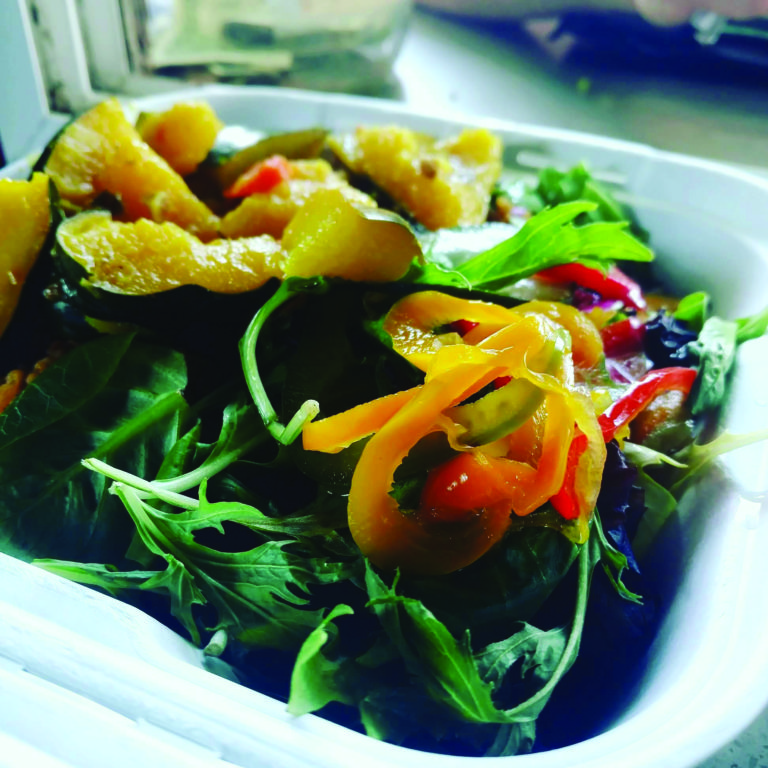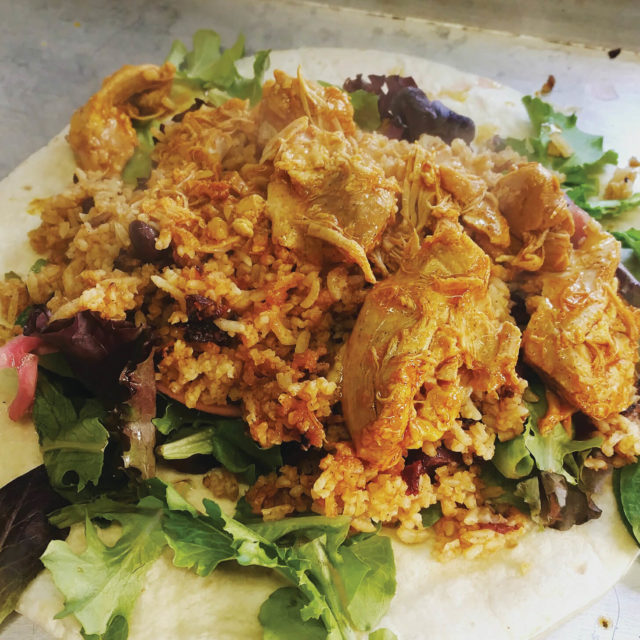by Oona Mackesey-Green for Northside News
When Thony Clarke — known to longtime customers as “The Mango Man” — opened his first food cart, Cafe Costa Rica, in 2003, he remembers the food cart scene being very different than it is today. “Those were challenging times,” said Clarke. “People were kind of closed up.” When he reached out to established food carts looking for tips about getting started, he said, “There was a lot of discouraging information — this is really hard, you don’t want to do this, you’re going to fail.”
“Being the guy that I am, you don’t want to tell me that I can’t do something,” Clarke laughed. “I’ll show you. And I did.”
But “it was tough, building the cart from nothing,” said Clarke. He recalls 18-20 food carts vending from the coveted spots on Library Mall and the Capitol Square around that time, but he wasn’t approved by the city’s street vending coordinator to sell there. “I started working only at nights and weekends, doing the late night crowd,” said Clarke.
After several years in business, Clarke said, “everything collided the right way.” The owners of the Cuban restaurant and food cart Guantanamera were retiring and leaving their space on Butler Street. They reached out to Clarke who then opened Cafe Costa Rica as a restaurant in the space.
In the nearly 20 years since then, Clarke said “many doors were opened” for cart owners. Although the number of food carts in Madison has decreased in the last couple of years, it is still far above what Clarke recollects in 2003; this year 51 food carts competed in the City of Madison’s review process to secure vending locations on Library Mall and the Square.
Food carts, Clarke says, provide an accessible way for people to create businesses in the food industry. Particularly now that “the market is accepting of the craft. People have an easier time getting in and seeing profit right away.”

Cafe Costa Rica has undergone its own evolution over the past decades. Clarke opened and closed his restaurants on Butler Street and Willy Street, and has launched a line of sauces while continuing to operate his food cart. The sauces are now available at Woodman’s and the Willy Street Co-op, as well as other local grocery stores.
Despite the shifts in venue, Clarke says, “The beauty of [Cafe Costa Rica] is that it hasn’t changed much.” Clarke continues to serve dishes he describes as Latin American and Carribean fusion. He has, however, taken into account lessons learned through business over the years. His recipes are “shaped by customers and their opinions.” As Clarke sees new entrepreneurs launching their first food carts, he hopes to help them have the start-up experience he wished for in 2003. “I’m an open book, and I try to help. I talk about my experience. I am really happy to share the information that I have.”
“I believe that the future of the food industry — any industry — depends on small people. That’s where the innovation comes from. The food carts that are here doing their business today are going to be the restaurants of tomorrow.”



































